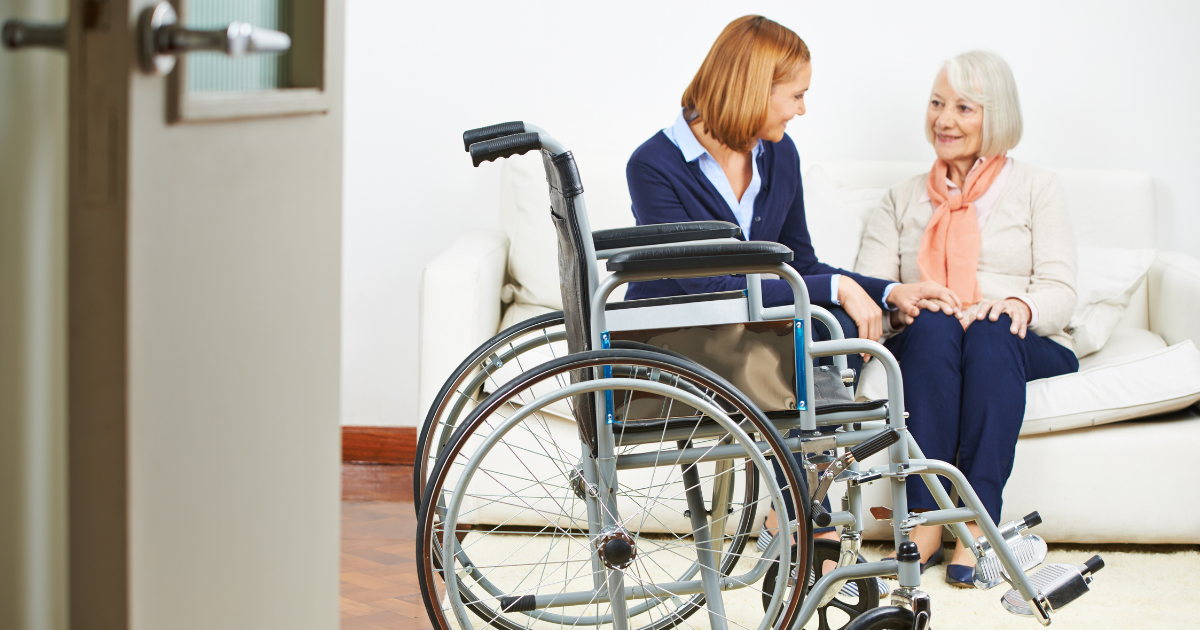Because the words “home care” and “home health” sound so similar, many people assume they’re the same thing. However, they’re quite different – there are some important differences between them. To help you understand each other better and decide which type of care would be best for your loved one, here is a rundown on the differences between home care and home health.
Home Health
At its core, home health also referred to as “home health care,” is medical care. Medical professionals provide this type of care; it requires a written order from a physician. Its primary purpose is to help adults recover at home from a serious health issue, many times after they’ve been discharged from a hospital or skilled nursing facility (nursing home).
Home health is usually less expensive and much more convenient than having the adult remain in a facility to receive care. Services typically include:
- Medical case management
- At-home physical, occupational, or speech therapy
- Monitoring serious illness and unstable health status
- Pain management
- Injections
- Wound care for pressure sores or a surgical wound
- Intravenous (IV) or nutrition therapy
- Catheter care
- Medical equipment such as a hospital bed, showering aids, oxygen, etc.
Home health care is designed to provide care equivalent to the level of care someone can receive at a hospital, outpatient surgical care center, rehab center, etc., but at a lower cost.
Home health is often thought of as a service only for older adults, but many younger adults, and even children, can require home health care. For example, a person of any age can be injured in an automobile accident and need at-home injections for pain management.
Home Care
Home care services are non-medical; a doctor’s prescription is not required. Its primary purpose is to assist older adults with activities of daily living and personal care. Its ultimate goal is to help adults remain safe and comfortable in their own homes. Services typically include:
- Help with activities of daily living, such as bathing, getting dressed, eating, etc.
- Medication reminders
- Getting in and out of the tub, shower, or bed
- Grocery shopping and meal preparation
- Light housekeeping, such as vacuuming, doing laundry, washing dishes
- Companionship
- Transportation
- Respite care
- Alzheimer’s and dementia care
Professional caregivers provide home care services and are usually provided by home care agencies. Professional agencies recruit, hire, train, and manage caregivers, eliminating families from having to assume these and other responsibilities, such as providing caregivers with benefits, paying payroll taxes, carrying liability insurance, etc.
Home Health & Home Care Can Overlap
In some cases, an adult may require home care services at the same time. A person needing home health services may also need home care services to improve their overall quality of life. For example, let’s say John is an 80-year-old who enjoys bi-weekly visits from a home care provider. After undergoing knee replacement surgery, he experienced several complications. The doctor allowed him to return home from the hospital but prescribed assistance to help him with aspects of health care that his home care aide couldn’t provide, such as physical therapy and injections to manage his pain.
Home Care by Home Instead of Southwest Florida
Home Instead of Southwest Florida is the premier provider of home care services to seniors in Naples, Fort Myers, and Charlotte County, Florida. Our team of professional CAREgivers provides practical support at home with a compassionate human touch.
Contact us today to learn more about how we can help your loved one safely age in the comfort of their own home. We’ll be happy to design a care plan that will meet your family’s needs.




